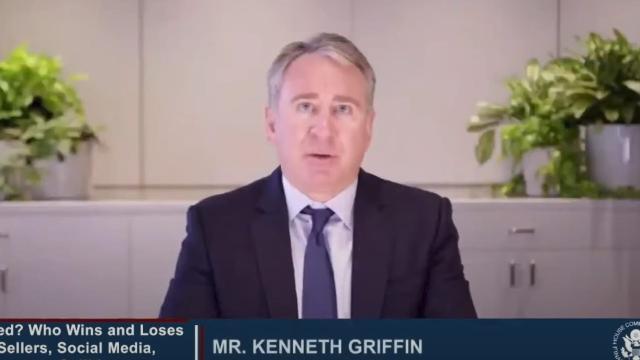The long-awaited report into the GameStop short squeeze fiasco from the Securities and Exchanges Commission (SEC) has been released, and the result is anticlimactic. The report shies away from policy changes and its strongest sections could barely be called soft recommendations.
Back in January, organised retail investors noticed the GameStop stock was heavily shorted, and whipped up the r/wallstreetbets subreddit into pumping the stock, effectively punishing the short sellers. That is, until several platforms halted trading on the stock in unison.
Many retail traders will want to know what the SEC found in relation to potential collusion between the hedge funds losing out and the trading platforms. The SEC found no wrongdoing, no collusion between big players, and no manipulation of the market. Its narrative over brokerages halting trading seems to mostly accept the reasons given by those platforms at face value – namely, margin calls and “capital charges imposed by NSCC”.
Other than this short explanation, it largely steers clear of the theory that hedge funds like Melvin Capital may have pressured platforms or called in favours to halt trading on GME. With multiple platforms freezing trades on these meme stocks at the same time, retail traders felt anxious that the fix was in – a sentiment that eventually led to a Congressional hearing.
The main points of the report are:
- Proposes shortening the settlement cycle to mitigate systemic risk and potential for brokerages restricting trading
- Calls for consideration of whether videogame-like features should be present in trading apps, as well as the Payment For Order Flow model
- Mentions the lack of transparency in wholesalers and the fewer requirements they must abide by
- Calls for better reporting around short selling so regulators can better track the dynamics
As you can tell, the report is hardly forceful.
Bizarrely, the ‘SEC GameStop report’ also seems to counter the main narrative of the whole affair – the narrative that was plain for anyone on the internet to see:
The underlying motivation of such buy volume cannot be determined. Whether driven by a desire to squeeze short sellers and thus to profit from the resultant rise in price, or by belief in the fundamentals of GameStop, it was positive sentiment, not the buying-to-cover, that sustained the weeks-long price appreciation of GameStop stock.
That quote runs counter to what most people saw with their own eyes. An organised group of retail investors squeezed the living heck out of a hedge fund. While many investors would defend their actions by saying “I like the stock“, a large number of comments on r/wallstreetbets showed that this was more of a political statement to many rather than an investment.
Two Republican commissioners for the SEC, Hester Peirce and Elad Roisman, also felt that this report wasn’t the one we expected:
This report should have been an anodyne report on the events of earlier this year and, if evident from the data, an assessment of the causes of those events. Surprisingly, the report turned into an account of those events awkwardly intertwined with discussions of market practices and policies that mirror Commission-level conversations unrelated to the specifics of January’s events.
The SEC was mainly focused on the narrative of brokerages being incentivised to maximise the amount of trades, which could result in retail investors going harder than they’d otherwise like to.
Brokerages benefited from the Payment For Order Flow model (PFOF), collected fees from market makers that they’d divert orders to – a practice that can sometimes generate conflicts of interest, and the reason apps like Robinhood can remain commission free.
In this case, there was a reported conflict of interest. Citadel Capital, the firm Robinhood was diverting many trades to, has a CEO (Ken Griffin) with a large stake in Melvin Capital, the main firm being devastated by the short squeeze. Griffin had claimed that he had no contact with Citadel.
As the hashtag #KenGriffinLied began trending on Twitter, the social media platform stealthily changed this to just #KenGriffin.
Combine PFOF with Robinhood’s gamification of trading, which blasted the user’s screen with confetti and had cartoon hot air balloons launching to celebrate a completed trade, and we open up a discussion about whether or not trading apps should be using proven behavioural psychology to increase the amount of trades.
The SEC is claiming that a cocktail of PFOF, trade gamification and the relief checks sent out by the Biden administration resulted in a perfect storm that incentivised more trades than normal, resulting in the GameStop debacle of January.
This narrative is certainly different to what many retail investors would have expected, and one that absolves short sellers and trading apps from any wrongdoing (other than the same psychological manipulation on most social media apps). It’s in line with what Robinhood executives have been pushing, that all of this was just an extraordinary series of events.
Perhaps the most positive aspect of the report is that the PFOF model may be looked at, which may lessen future conflicts of interest.
